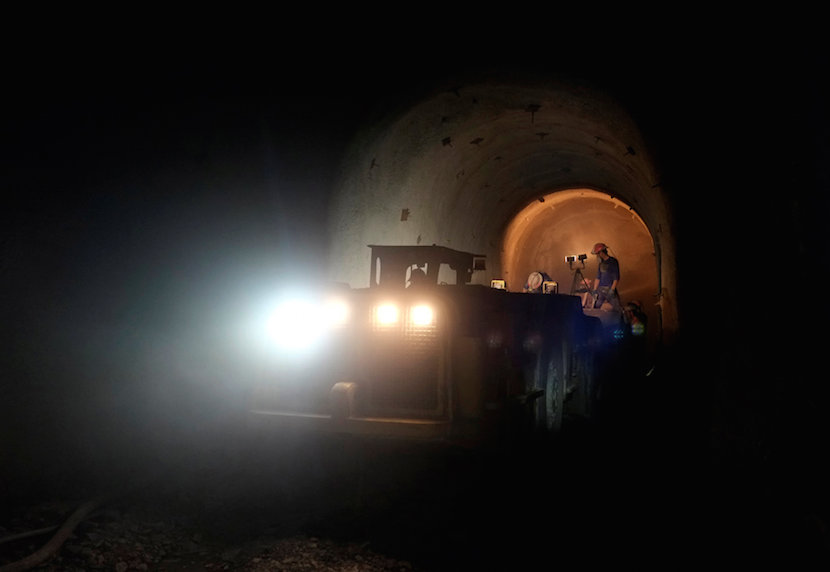Socialists miss a few economic points, among them how their grand plans need funding by someone’s money. As important, though, is a refusal to acknowledge how disciplines of capitalism act like the pruning of a garden – tough on those cut back or ejected, but hugely beneficial to the whole. Witness actions taken to overcome a mining crisis sparked by collapsed commodity prices. To survive, the companies at risk were forced to address unaffordable leveraging. That required tough decisions, aggressive “pruning” of portfolios through an approach of shut, sell or fix. The process translated into the loss of tens of thousands of jobs. Such discipline is anathema to the socialist mentality which possesses zero appetite for taking tough economic decisions, preferring to try muddle through with predictably destructive results (witness Venezuela). The rehabilitation of Anglo American and Glencore’s tradable debt provides another landmark in a cycle that always turns. Eventually. Because that is how capitalism – and life – tends to work. – Alec Hogg
By
(Bloomberg) — Mining companies are getting back into financial shape and have cut the sector’s pool of distressed bonds by at least $60 billion, providing another boost to the industry’s outlook as commodities enter a bull market.

Anglo American Plc and Glencore Plc are among companies whose notes no longer feature in the ranks of distressed U.S.-dollar denominated debt after selling assets and cutting dividends to bolster their balance sheets, according to Bloomberg Intelligence. The amount of metals and mining bonds trading at distressed levels fell this month to $26 billion from a peak of $86 billion in February, the data show.
“There has been a large degree of self help, whether that’s through asset sales or cost cutting or capex rationalization, to improve cash flow,” said Anthony Ip, a credit sector specialist at Citigroup Inc. in Sydney. “At the macro level, you’ve got the rally in commodities prices and the market appears more comfortable with China risks, so that’s helping sentiment.”
Commodities have entered a bull market, ending a five-year rout, as supply constraints drive up prices in everything from soybeans to zinc, while Citigroup said last month that raw materials had turned a corner following the biggest price collapse in a generation. Mining companies have trimmed loss-making output, lowered costs and scrapped pledges to continue boosting payouts to investors to mitigate the impact of tumbling prices.
Notes issued by the likes of copper producer Freeport-McMoRan Inc. and iron ore miner Fortescue Metals Group Ltd. also are no longer trading at distressed levels, according to Bloomberg Intelligence’s Richard Bourke. The analysis examined bonds with more than $100 million outstanding that were trading with option-adjusted spreads greater than 1,000 basis points. Spreads that wide are often considered a definition of distress, according to Bourke.
Read also: How mighty have fallen. Moody’s downgrades Anglo American’s debt to junk.
Moody’s Investors Service, which began a sector-wide assessment of mining in January that prompted 36 rating downgrades, last month upgraded the outlook on Anglo’s Ba3 senior unsecured ratings from negative to positive as a result of better-than-expected asset sale receipts. Anglo in April agreed to sell its niobium and phosphate businesses for $1.5 billion.
Miners have announced $27 billion of pending and completed asset sales this year, including China Molybdenum Co.’s $2.65 billion agreement to buy Freeport’s stake in the Tenke Fungurume copper-cobalt mine. That’s easing concern over producers’ debt even with raw materials prices trading about 50 percent lower than a 2011 peak.
Others haven’t been able to withstand pressure on prices. Coal producer Peabody Energy Corp. and iron ore miner Magnetation LLC are among companies to file for bankruptcy amid the slump. Sydney-based Australian steel and iron ore supplier Arrium Ltd. appointed a voluntary administrator in April after lenders rejected a $927 million recapitalization plan.
Read also: BHP shrugs off Glencore – “closures won’t lift sagging prices”
The recent rally in materials prices probably isn’t sustainable as demand remains muted — particularly in China — and as supply continues to grow in some sectors, according to Matthew Kence, a Boston-based senior vice president credit at Standard Life Investments, which manages about $372 billion of assets globally. The World Bank on Tuesday cut its outlook for global economic growth this year to 2.4 percent from a 2.9 percent estimate in January.
“While the better balance sheets and liquidity positions certainly lessen the near-term risks to these credits, and bond prices have reacted to this, ultimately fundamentals still matter,” Kence said in an e-mailed response to questions. “We view the backdrop as not overly favorable for commodities, with global growth just muddling along and the risk of a strengthening dollar looming.”
While prices will remain under pressure over the next 12 to 18 months, Moody’s will continue to examine actions by individuals producers in assessing their ratings, Matthew Moore, a senior analyst at Moody’s said by phone.
“One of the things that we’ll continue to look at is the ability of companies to execute on things like asset sales for debt reduction,” Moore said. “We’ve also seen companies like Fortescue go out and buy back some of their debt as well, which is improving the position of that company in its rating level.”

